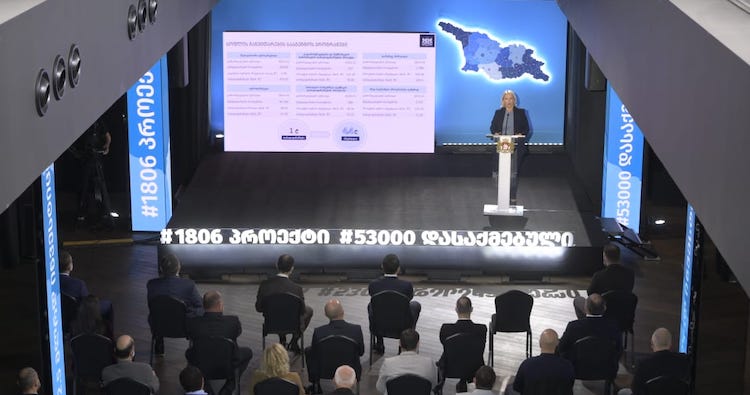What is Georgia's potential in business process outsourcing?

The paper reads that over the past five years Georgia has managed to develop a growing and competitive services ecosystem. Photo: Nino Alavidze/Agenda.ge.
Ryan Strategic Advisory has published a research paper on business process outsourcing (BPO) opportunities in Georgia, which reads that the country has come onto the outsourcing scene 'with a tight, targeted business services offering that is attracting the attention of executives across western demand markets'.
The paper reads that over the past five years Georgia has managed to develop a growing and competitive services ecosystem and the reasons for this include:
- Strong economy
- Competitive taxation regime - the most important provisions to encourage BPO investment include no taxes on retained profits, low personal income taxes (currently 20%) and a flat corporate income tax capped at 15%
- Low levels of red tape - from a regulatory standpoint, Georgia is among the easiest for new investors to navigate
- Incentives that work for the outsourcer - Georgia has instituted several measures that help alleviate different cost buckets, including grants of up to $230,000 for new BPO projects
Collectively, these factors have already led to significant BPO investment in Georgia. These include global providers [entrance to the country] such as Concentrix, Majorel, and EPAM, through to local upstarts such as the Georgian Service Group (GSG)", reads the paper.
The paper reads that one of the reasons that so many operators are looking at the opportunities to deliver services from Georgia relate to the country’s linguistic talent:
In fact, with nearly 600,000 foreign language speakers in the country’s major cities, outsourcers are finding that Georgia can provide the basis for a niche multilingual hub", reads the paper.
According to Invest in Georgia, among the students who have taken foreign language tests in the country’s national examinations over a decade-long period, there is scalability in English, Russian and German.
In addition, while the numbers of speakers are lower, there is also the potential for recruiting talent that speaks Italian, French and Turkish, reads the paper.
 Tweet
Tweet  Share
Share



